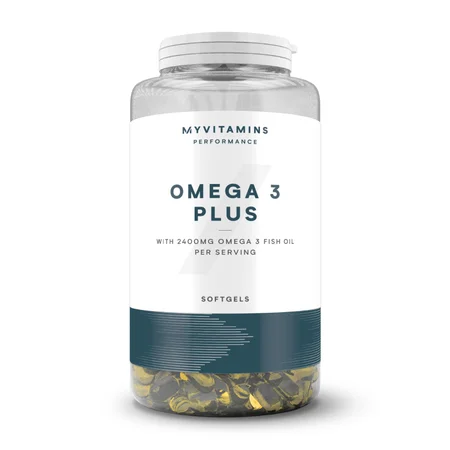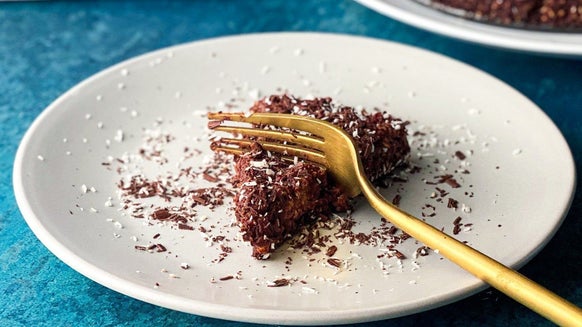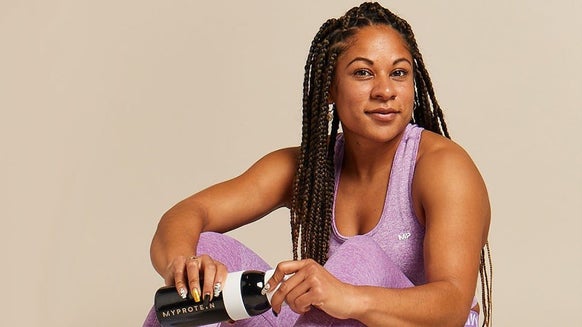This Is What Happens To Your Body During Menopause

Menopause is something that directly affects half of the world’s population, but it receives remarkably little mainstream discussion. It can have a significant impact on the lives of women going through it, so it’s super important that people — men included — know more about the topic.
That’s why this episode of Nutritionist Explains is dedicated to the menopause. Richie delves into what it is, its effects, what treatments there are to help symptoms, and how nutrition can play an important role.
For the video, Richie received insight and feedback from Amanda Thebe, women’s health expert and author of Menopocalypse: How I Learned to Thrive During Menopause and How You Can Too.
What is the menopause?
Menopause is all to do with hormones.
When girls hit puberty in their teen years, the sex hormones oestrogen and progesterone massively increase in production, which progresses all different parts of female puberty, including controlling the period cycle.
Between the ages of about 40 and 50, a woman’s oestrogen and progesterone levels suddenly drop substantially. Because of this significant change, the symptoms of menopause begin. This early stage is called perimenopause, and one of the first symptoms is irregular periods.
Once a woman in this perimenopausal stage has gone an entire year without a period, she is then considered to be in menopause.
What are some of the symptoms of menopause?
Common symptoms in menopausal women include hot flashes and night sweats (experienced by 75% of menopausal women) and can last for decades.
Some women also experience heart palpitations, brittle bones, lack of sleep and mood irregularities like anxiety and depression, brain fog, loss of libido, and a host of other symptoms.
Many menopausal women will also experience other changes to their body, like weight gain, loss of muscle mass, and where body fat is stored. The lack of sleep mentioned earlier can also contribute to weight gain, as tiredness can increase cravings for high-calorie, high-fat foods and affect activity levels.
So, how can we treat these symptoms? Well, first off, Richie explains what not to do …
“If you ever hear a nutritionist or basically anyone who is not a doctor speak about ‘balancing hormones’ around menopause, you can just assume that they are talking absolute ****.”
Treating menopause symptoms – MHT & HRT
Menopause hormone therapy (MHT) is a prescribed treatment where a woman takes either oestrogen or a combination of oestrogen and progesterone to supplement the hormones lost during the menopausal process.
Richie says this is more commonly referred to as “hormone replacement therapy” (HRT). It’s a term he believes is less appropriate than MHT, as hormones aren't replaced to previous levels, but he uses it in the video because many people are familiar with it.
Hormones used in HRT can help with management of menopause symptoms. While it isn’t suitable for everyone, if you think you might be going through menopause, it’s well worth consulting your doctor to find out if it could help you.
Lifestyle changes to help menopause
While diet and exercise can’t “balance your hormones” to ease menopause symptoms, they can improve your overall health and fitness, and improve overall quality of life.
Richie recommends resistance and strength training for women going through menopause, as it will help to maintain lean muscle mass that naturally declines with age and even help to build new muscle mass.
Bone density and strength also naturally decrease during menopause, so strength and resistance training can help here too.
Richie also recommends regular cardio, like jogging or cycling, to help maintain heart health, which can also become an issue as we age.
Nutritional changes to help menopause
Keeping your protein content high (unless told otherwise by your doctor) is also super important for maintaining maintain muscle mass as we get older. Higher protein meals also keep you fuller for longer, helping to reduce hunger pangs. Richie recommends about 30-40g of protein per meal.
Because heart health is a big concern for menopausal women, diet is an important tool. Aim to reduce your levels of saturated fats and to consume more leaner meats and lower fat dairy.
Unsaturated fats like olive oil and fatty fish can help keep your levels of “good” fats high.
Supplements to ease menopause symptoms
Supplements will not “balance out” your hormones during menopause, but they can help ease symptoms and contribute to overall health.
While Richie says it's important to get most of your protein content from whole foods, protein powders are a great and convenient way to reach your protein goal every day.
Richie also recommends creatine for menopausal women as it can increase muscle strength and power, allowing you to train harder in the gym. It has also been shown to aid brain health, which can help with symptoms like “brain fog” during menopause.
Finally, fish oil is another recommendation from Richie. It’s a useful supplement for anyone but especially for menopausal women in need of healthy fats.
Take home message
The menopause causes huge changes to a woman’s life, and the symptoms can last decades. It’s incredibly important that we talk about it and educate people about the symptoms it can cause. Hopefully Richie has enlightened on the topic and given some useful recommendations for anyone going through it.
Keep fit, feed your body with nourishing foods, and, as always, consult your GP.







